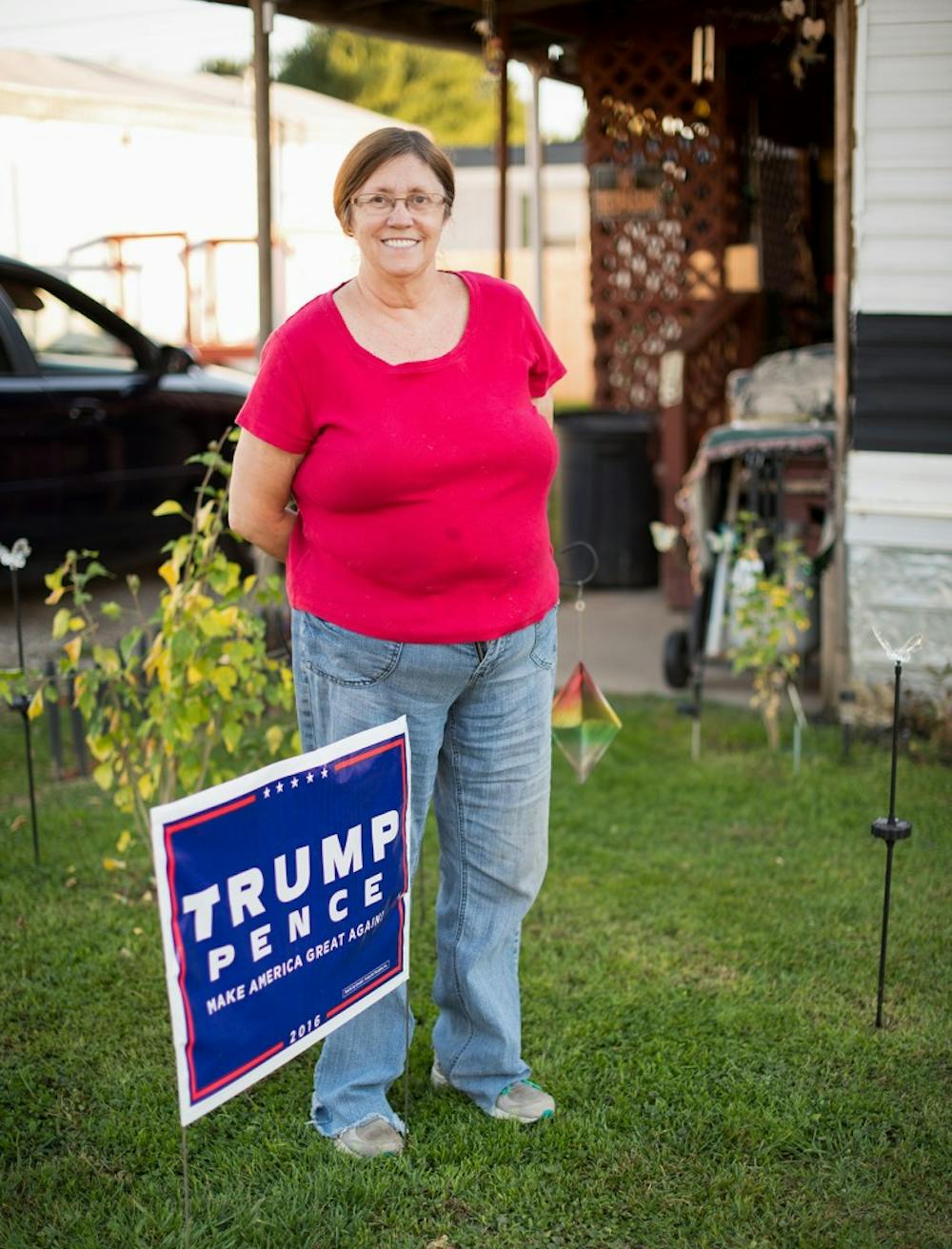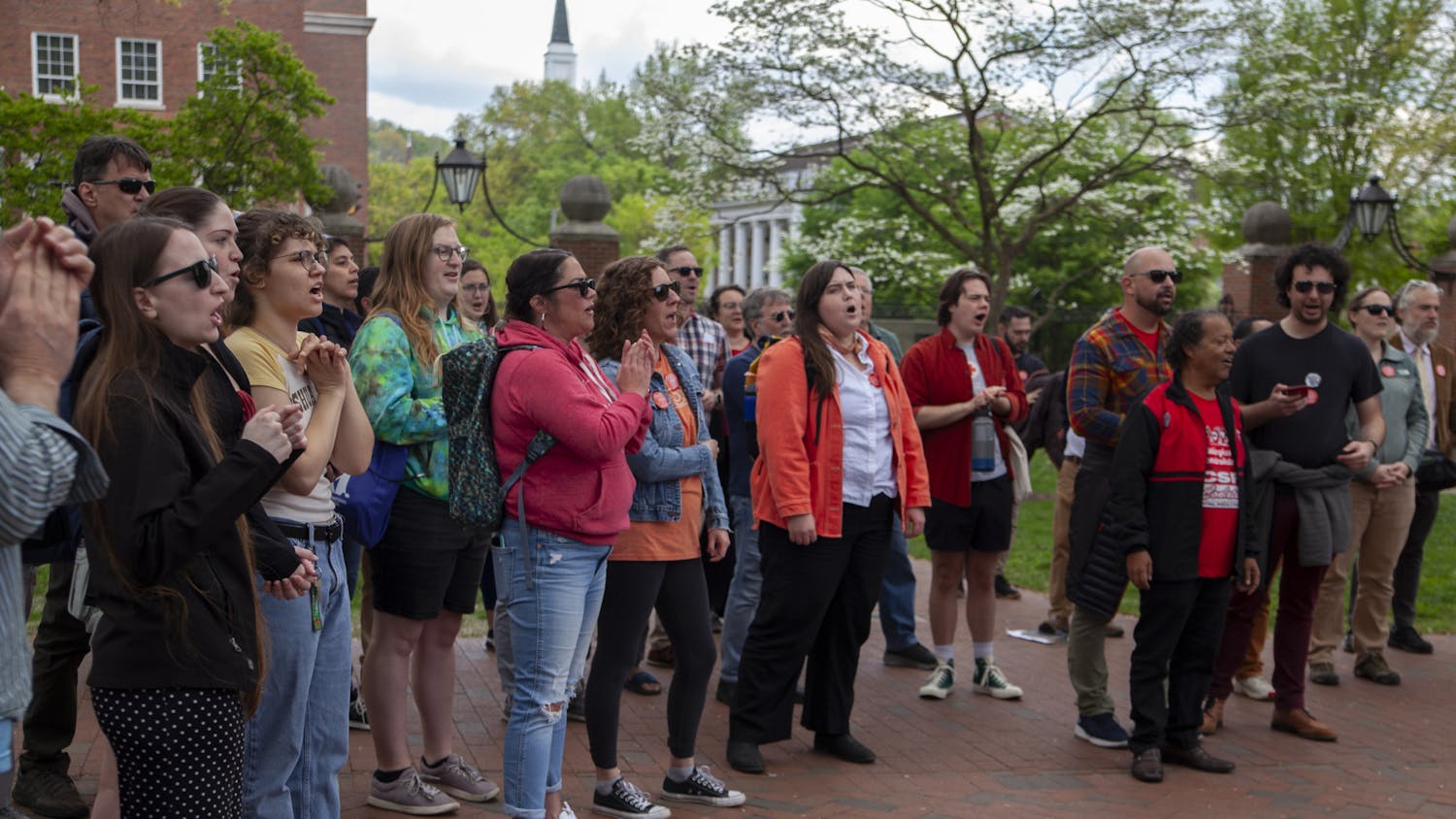Editors's Note: This story has been updated to reflect the version that appeared in our weekly print edition.
As Donald Trump drew nearer to the 270 electoral votes needed to take the White House on Tuesday night, Athens County Republican Party Chair was sitting in a mostly empty headquarters.
By then, every Republican on the ballot had won except Donald Trump, and Couladis was discussing what Trump needed to do to be an effective president.
“He has to work with these people” Couladis said. “As (President Ronald) Reagan used to say, ‘If you agree with me 80 percent of the time, you’re my ally.’ That’s the problem with these Tea Party groups, if you disagree with them on one issue, boom. You’re evil.”
But as Couladis talked, he was challenged by another Republican volunteer who said the establishment was to blame for fraud and abuse of power. It was an illustration of a possible division that Republicans would face going forward.
That anger towards the establishment was evident in Jeannie Waddell, a resident of The Plains who describes herself as a lifelong Republican and ardent Trump supporter. If Ohio Gov. John Kasich ever runs for president, since he cannot be re-elected governor, he will not have Waddell’s support.
“I will never vote for him,” Waddell said of Kasich.
Their frustration reflects a greater disillusionment that some voters hold toward political elites on either side of the aisle.
Howard Michael is a registered Democrat who backed Trump, but he said his anger is directed at both parties.
“Washington is a great big nest of crooks,” Michael, a former truck driver, said. “They don’t know what we go through. It’s been awful for years.”
Ohio was the only state Kasich won during the primaries in March, though Trump won the southeast part of the state. Athens and the surrounding counties all voted in favor of Trump, and while some had supported the governor’s stance against Trump, local Republicans were overwhelmingly for the controversial candidate.
"You can probably distance yourself from some of the goofy comments he's made," Athens County Republican Party Chair Pete Couladis said. "But there are two choices for president: Trump and (Democrat Hillary) Clinton. That's what it boils down to."
Kasich is one of the more outspoken critics of Trump within the Republican Party, but he is not alone in Ohio. Sen. Rob Portman, who was seeking re-election, also un-endorsed Trump in mid-October following Trump’s vulgar statements about women. Portman said he would instead write in Trump's vice presidential pick, Indiana Gov. Mike Pence. State GOP Chairman Matt Borges caused a stir when he cut ties with the Trump campaign, although Borges later backtracked and said he would vote for Trump.
Ohio University College Republicans President David Parkhill said he was frustrated with Portman and Kasich following their lack of support.
"I was going to talk to Portman about this, but I didn't get the chance," Parkhill said. "I'm still frustrated. They need to be held accountable if we lose."
Portman easily defeated his opponent, former Gov. Ted Strickland, as Portman’s refusal to back Trump did not cost him the election. Going into election day, he had the support of Waddell, Parkhill and Trump volunteer Rebecca Keller.
"I already voted, and I voted for Portman," Keller, an Athens resident, said. "We're supporting (Republicans) down the ballot. If people have personal issues, they have to deal with that on their own."
Trump handily won Ohio, 52.1 percent to 43.4 percent, although he did lose in Athens County. The Buckeye State has proven to be a bellwether for the country: John F. Kennedy was the last candidate to win the presidency without winning Ohio, which he did in 1960.
Despite losing Athens County, Trump did attract new voters in the area. About 400 people changed their party affiliation from Democrat to Republican since the beginning of Trump's campaign, a migration that Couladis said was caused by Trump's local appeal. Couladis’ question going forward is this: Will those Trump supporters be willing to work together with establishment conservatives?
The success of Republicans like Portman suggests that some Trump supporters might. Dan Decaminada is a retired coal miner and a lifelong Democrat who lives on Clinton Street in The Plains. He does not share an affinity for the political family that shares his street name, though.
“I didn’t care for her then,” Decaminada said of Hillary’s time as First Lady. “And I damn sure don’t care for her now.”
Decaminada said he was concerned about Clinton appointing another liberal justice to the Supreme Court and the effects of further trade deals.
“I think I’m going to vote a straight Republican ticket,” he said on Sunday.
That is the answer Couladis was hoping to hear. But at the same time, Couladis acknowledged that some Trump supporters will hold a grudge against Republicans who did not support the presidential candidate.
“They have to realize running a party is a team effort, you have to work with people you don’t agree with,” Couladis said. “Political parties are coalitions.”
But a lot of the frustration expressed by voters comes from the feeling that establishment Republicans are as much to blame as Democrats for not accomplishing anything policy-wise. Trump supporters such as Michael support the GOP nominee because he is not part of that coalition.
“Washington has been awful for years,” Michael said. “They’re all together, they’re all hooked up together by special interests.”
Couladis was not sure what the future would hold for the Republican Party, or if the GOP was currently in a better spot than it was four years ago. But he felt the best thing for the party and Trump to do going forward was to give the people something substantial in legislation.
“I think Republicans will put aside their differences and work with him,” Couladis said. “What happens to the party will depend on how the Senate and House and local legislatures respond to the people. Whether it’s the drug problem or jobs, they need to put their differences aside and work together.”





